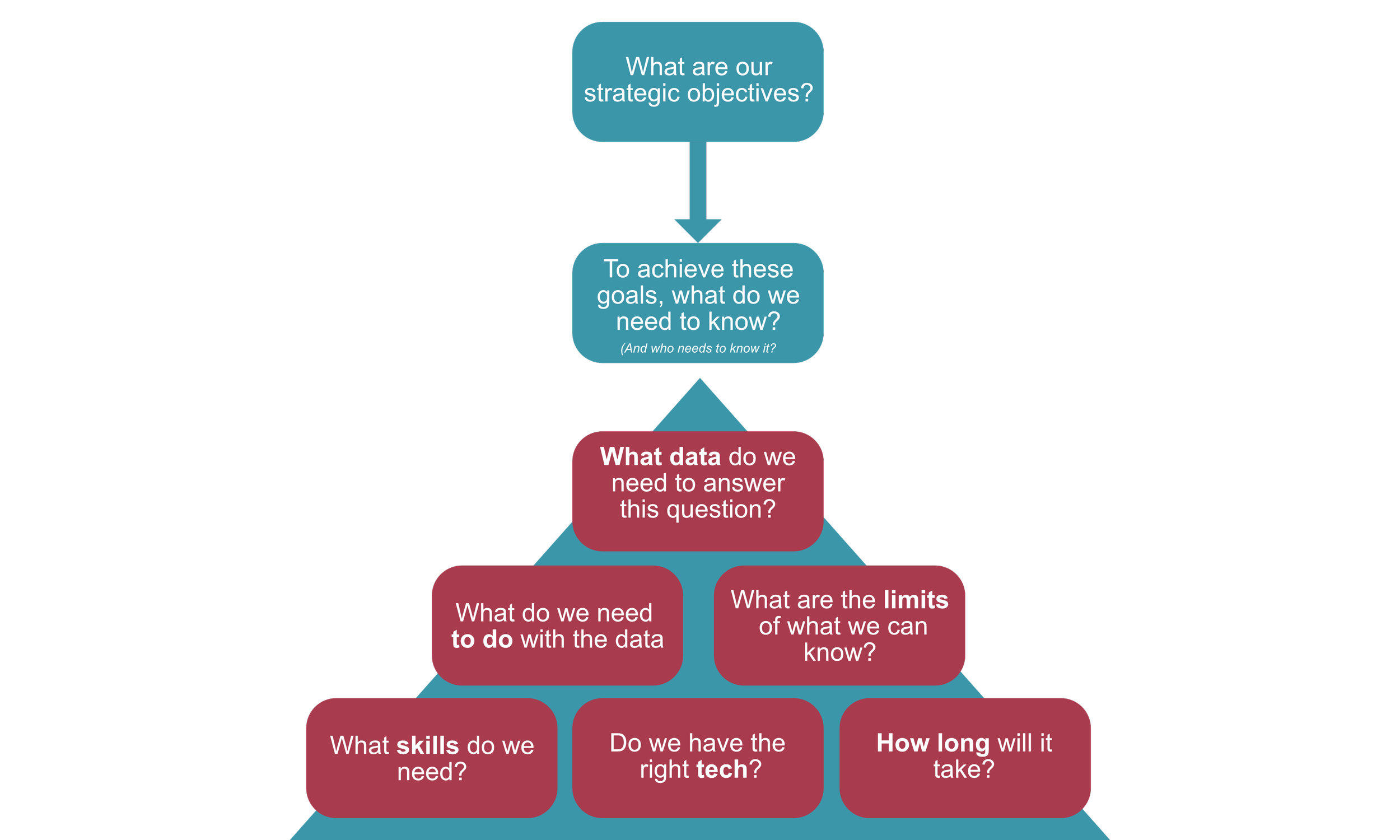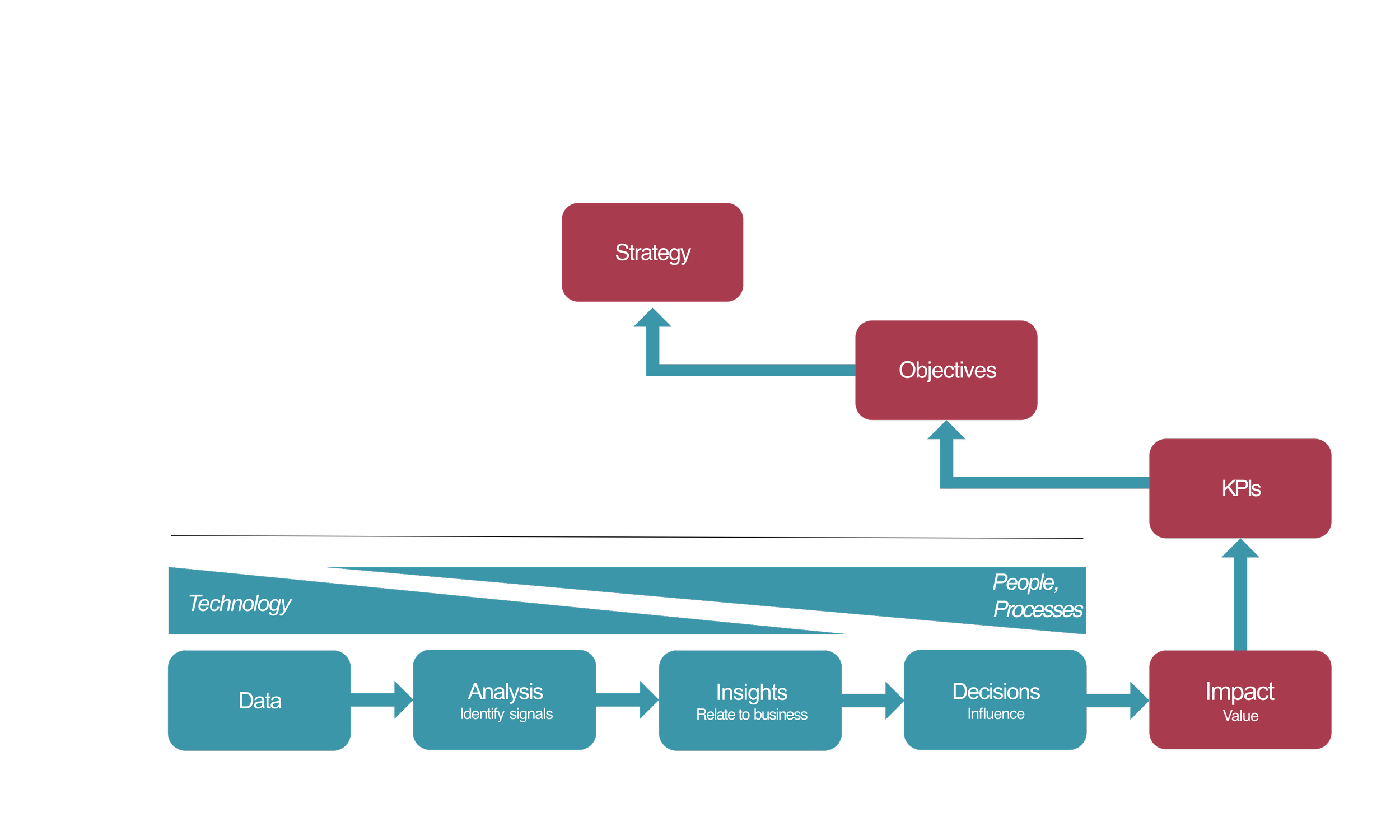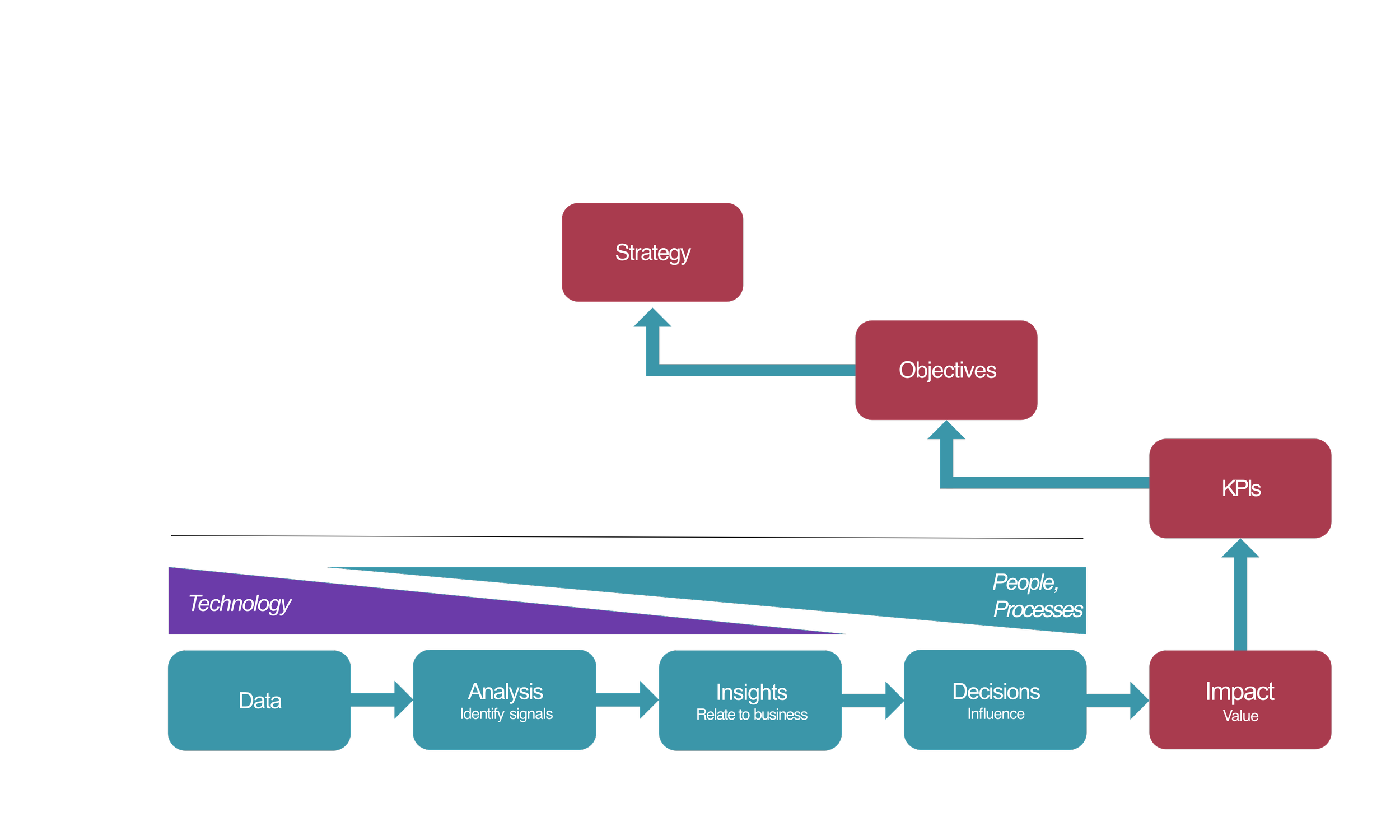Analytics Innovation - are you working with AI yet?
In my previous post I discussed how common approaches to getting more impact from data will not on their own achieve a great deal, apart from increasing your costs. Here I will discuss a better way to look at the problem.
As with any business problem, it pays to start with your strategic goals - what hard things are you trying to achieve to deliver value for your customers, protect your business from competitors and return value to your owners? When you have a good understanding of this it becomes much easier to think about what you need to do with your data to achieve these goals.
The Analytics Impact Hierarchy
By starting with strategic goals, it becomes clearer what you need to know, and what steps you need to take to get there. This strategic goal is the goal of your innovation: you are trying to use analytics to developing new knowledge about your problem. This new knowledge will help you unlock your goal.
The five questions in the hierarchy start to build the plan for how you are going to develop this innovative knowledge. By answering each one you start to build a picture of how you can get more value out of your data by unlocking this goal.
The questions are arranged in descending order of importance - there is no equality here! Before going any further you need to answer the question what data do you need to answer your questions. If this data is unobtainable then you might need to revise your questions, or even your goal.
Once you know what data you need you can start to look at what you need to do with it and. to what extent it will be possible to answer your questions. For example, if you are trying to build a forecast but you don’t have much historical data then you are going to have to compromise on the precision of your forecast.
Only after looking at these three topics do we get to the more practical topics of skills and technology, and finally timing.
Looking at the problem from the perspective of these five questions is helpful for planning out how to achieve a single goal one time but it doesn’t help you build an organisation that can do analytics innovation again and again in a lean and efficient way.
Organisation resources need to work together to generate value
A key part of delivering analytics innovation efficiently is having resources that are not just good on their own but work well together. Data driven organisations have this kind of system embedded throughout, across every function, and at every level.
It is not only about technology, and it is not only about culture.
It is about multiple types of resource working together
But why are so many organisations struggling?
Organisations tend to focus too much on the technology and not enough on the system working together. This is understandable because the technology is more tangible, and usually gathered together under a Chief Information Officer or Chief Data Officer’s responsibilities.
CDO – “I’m responsible for making the company more data driven. If I make lots of reporting and no-code analytics tools available to everyone (data democracy) and give them enough training then they will just start making better decisions, right?”
There is a growing body of academic evidence that organisations that are more data driven perform better
Bryjolfsson & McElheran 2019 find that data-driven decision making (DDDM) is strongly associated with increased productivity. The benefits attributable to DDDM are distinct from those associated with other structured management practices or investment in IT, though the latter is an important complement.
Muller, Fay, vom Brocke (2018) find that productivity impact is positive(3%-7%) and significant for industries that are IT intensive (above median) and/or highly competitive (bottom 25% of HHI)
Wu, Hitt & Lou (2018) find results that "are consistent with the theory that data analytics are complementary to certain types of innovation because they enable firms to expand the search space of existing knowledge to combine into new technologies, as well as the theoretical arguments that data analytics support incremental process improvements"
So how can Future Consulting help you unlock some of those gains?
We help you identify and prioritise your opportunities for getting value from data (what are the strategic goals and related questions) and then support you in the implementation. As part of this implementation we look for opportunities to improve how your analytics resources are working together - making your analytics production line as lean and responsive as possible.
If you are interested in Analytics Innovation and how you can get more from your data Book a call to find out more about how we can help you.



